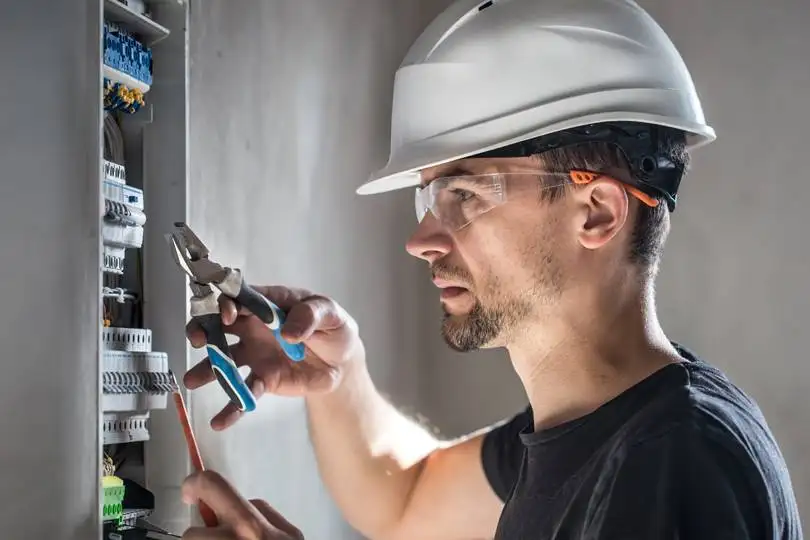Becoming an electrician requires a combination of technical expertise, practical skills, and a deep understanding of safety protocols. Whether you are just starting out in the field or are a seasoned professional, having the right skills is crucial for ensuring safe and efficient work. In this article, we’ll explore the essential skills every electrician must have to perform their job effectively and safely.
1. Knowledge of Electrical Systems
A fundamental skill every electrician must have is a comprehensive understanding of electrical systems. Electricians must be able to read and interpret blueprints, diagrams, and schematics that represent electrical wiring, circuits, and systems. This knowledge helps them troubleshoot issues, plan installations, and ensure everything is connected correctly.
Electricians must also stay up-to-date with the latest advancements in electrical technologies and systems, including smart home systems, energy-efficient appliances, and renewable energy sources like solar panels. Mastery of these systems ensures that they can address a wide range of customer needs while maintaining efficiency and safety.
2. Proficiency in Electrical Codes and Regulations
One of the most important skills an electrician must have is the knowledge of local, state, and national electrical codes and regulations. These codes ensure that all electrical work meets safety standards and legal requirements. Failure to follow these codes can result in unsafe installations, electrical fires, or legal penalties.
Electricians must be able to interpret these codes and apply them in their work to guarantee that all installations are compliant. They should also be familiar with changes in electrical regulations, which is why continued education and certifications are key to maintaining high standards.
3. Hands-on Problem-Solving Abilities
Electricians are often called upon to troubleshoot electrical problems, whether it’s an issue with wiring, a malfunctioning appliance, or an entire electrical system. Having strong problem-solving skills is essential for identifying the root cause of the issue and determining the most effective solution.
Electricians must be able to think critically and logically under pressure, as they are frequently faced with complex issues that require swift and accurate decisions. They should also be skilled in testing equipment and using diagnostic tools to pinpoint issues before performing repairs.
4. Technical Skills and Expertise
A qualified Electrician should be proficient in using a wide variety of hand and power tools, as well as specialized electrical testing instruments. Tools like multimeters, wire strippers, conduit benders, and power drills are essential for daily tasks. Mastering the proper use of these tools allows electricians to perform their duties with precision and efficiency.
In addition to these basic tools, electricians also need experience working with electrical panels, circuit breakers, fuses, and other components of the electrical system. Knowledge of how to install, maintain, and repair these components is crucial to ensure safe and reliable operation.
5. Attention to Detail
In electrical work, even the smallest oversight can result in serious consequences, such as electrical shock, fire, or equipment failure. Therefore, electricians must have a keen attention to detail when inspecting, installing, and maintaining electrical systems. They must ensure all connections are secure, wiring is correctly insulated, and all components are functioning as intended.
Attention to detail is also important for documenting work, as electricians need to keep accurate records of repairs, installations, and inspections. These records are necessary for compliance with regulations and can also be valuable for troubleshooting future problems.
6. Strong Communication Skills
Electricians need excellent communication skills to explain complex electrical issues and solutions to clients who may not have technical knowledge. They should be able to clearly outline what needs to be repaired or installed, what the estimated costs are, and how long the job will take.
Additionally, electricians need to communicate effectively with other tradespeople and contractors on job sites, ensuring everyone is on the same page. Whether they are working alone or as part of a team, clear communication helps streamline operations and prevents mistakes that could delay projects or create safety hazards.
7. Physical Stamina and Dexterity
Electrical work can be physically demanding, requiring electricians to work in tight spaces, climb ladders, and lift heavy materials. They must be able to maneuver in small areas, often working in attics, basements, or behind walls. Physical stamina and dexterity are necessary for completing tasks efficiently while minimizing the risk of injury.
Electricians must also maintain physical endurance to work long hours, especially during emergencies or large projects, while ensuring that all tasks are completed to a high standard.
8. Safety Awareness
Electrical work is inherently dangerous, and electricians must be highly aware of safety practices at all times. They should know how to use personal protective equipment (PPE) such as gloves, helmets, and eye protection, and how to work with electricity without risking electrocution or injury.
Safety awareness extends beyond just wearing the right equipment. Electricians must always de-energize electrical systems before working on them, use lockout/tagout procedures to prevent accidental power restoration, and ensure that their workspaces are free of hazards.
9. Project Management and Time Management
For electricians working on larger projects, strong project management and time management skills are essential. They must be able to prioritize tasks, manage resources, and complete jobs within a set time frame while maintaining quality and safety standards.
In commercial settings, electricians may be responsible for managing teams or coordinating with other professionals. The ability to plan and schedule work effectively ensures that projects are completed on time and within budget.
10. Customer Service and Professionalism
Electricians often work directly with homeowners, business owners, or project managers, which means that strong customer service skills are important. They need to be respectful, professional, and approachable while interacting with clients.
Being able to listen to customers’ needs, answer questions, and provide thoughtful solutions enhances the customer experience and fosters trust. A professional attitude not only helps in securing future business but also strengthens the electrician’s reputation in the community.
Conclusion
To be successful and safe in the electrical industry, an electrician must possess a broad set of skills ranging from technical expertise to strong communication and safety awareness. These skills are necessary to ensure that work is completed correctly, efficiently, and most importantly, safely. By continually honing these essential skills, electricians can provide high-quality service to their clients and maintain a reputation for professionalism and expertise. Whether it’s a routine installation or an emergency repair, the right skill set is what makes all the difference in delivering reliable, efficient, and safe electrical solutions.







